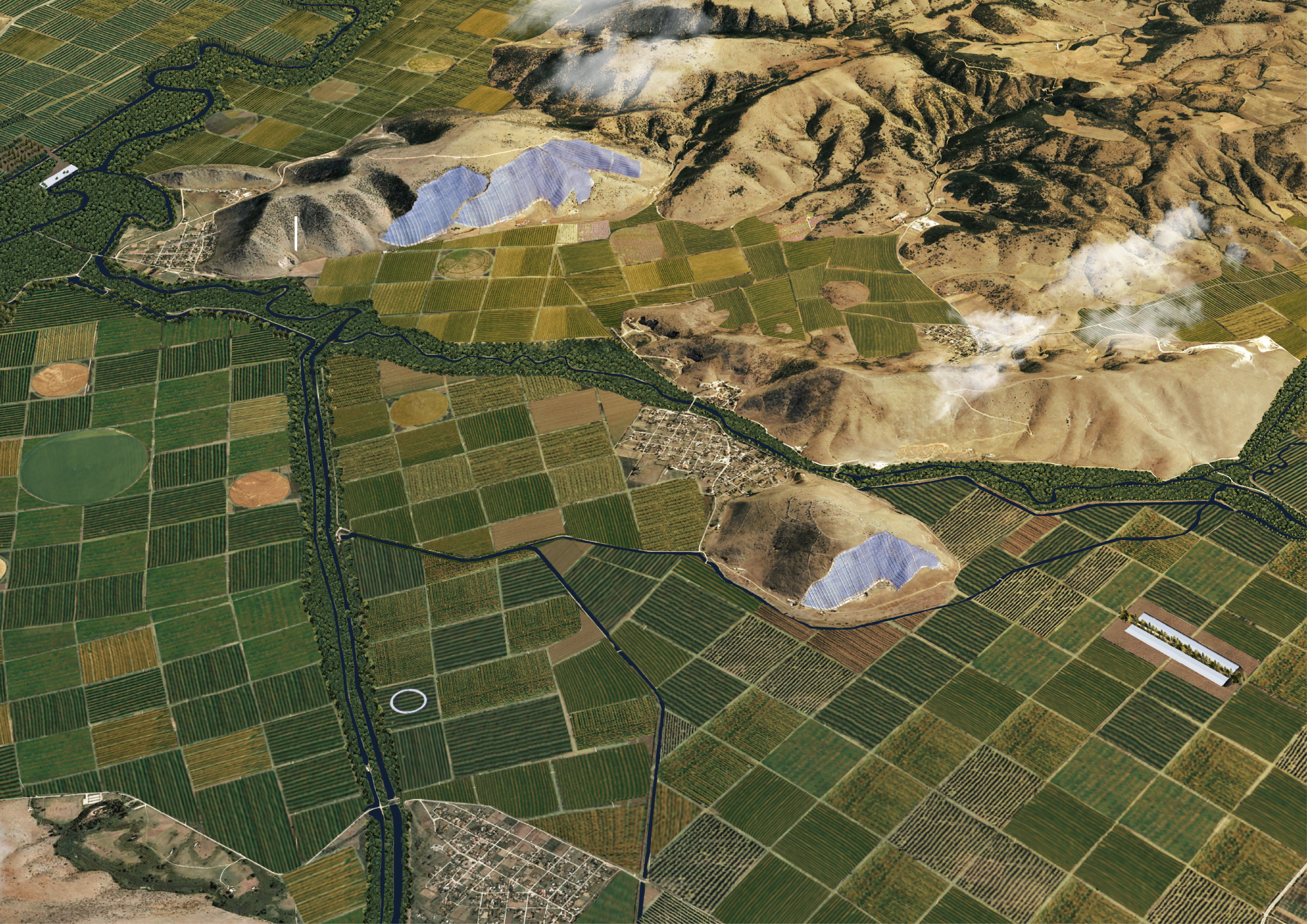
Kampos 2020: a case for the future of greek rural land
design thesis
university of patras
This thesis is a hypothesis about the future of the Greek rural land and more specifically of the Thessalian rural area. The Thessalian flatland is the 2nd largest productive plain in Greece with almost 5 million acres of arable land. Nevertheless, in the last four years, 7% of these acres have been abandoned due to infertility and soil erosion. We are creating a masterplan that focuses on successive scales and seeks to redesign the rural landscape. The area strategy is developed to ensure a sustainable future for agricultural production in adverse climatic conditions. We create different areas and zones for better land and water management (livestock area, new agriculture pattern), more efficient organization of the trade-production cycle (distribution zone) and energy autonomy (renewable energy park). To ensure biodiversity new types of cultivation are proposed depending on soil type. The attractions and the landscape in the area are strengthened through paths that mainly run along rivers, placed in forest zones. Forests operate as climate regulators and enhance plain’s biodiversity.
Our proposal includes building infrastructures, which are placed within the rural landscape. Each building is designed to have a unique dialogue with the surrounding environment (river overflow, crop’s horizon). The buildings’ programs aim to strengthen and modernize production through research (Research Ring), increase production (Underground Laboratories), organize the production-processing-trade chain better (Service Stations) and extroversion (Exhibition Center).
